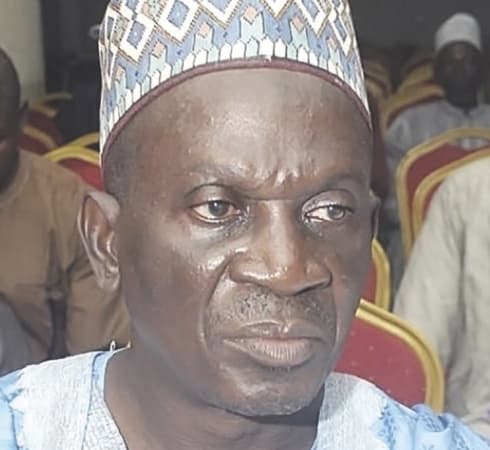
AbdurRahman Usman, Peoples Democratic Party PDP stalwart in Kaduna State
Dr. AbdurRahman Usman is a member of the Governing Council of the Peoples Democratic Institute (PDI) and Peoples Democratic Party (PDP) stalwart in Kaduna State. He declared that President Bola Tinubu has less than 600 days left and must be flushed out for allegedly failing to deliver good governance.
He accused the All Progressives Congress (APC) administration of deepening insecurity, mismanaging the economy, and turning Nigeria into a land where bandits sign peace deals while citizens starve.
Excerpts:
Nigeria’s political landscape is witnessing defections into APC ahead of the 2027 elections, what is your take?
The reason is simple. Majority of them have their hands soiled. And don’t forget, a former national chairman of APC, Adams Oshiomole, once said once you join the party, ‘your sins are forgiven.’ Under the PDP, sins were not forgiven just like that. Ministers were prosecuted. Governors were prosecuted. So, they don’t want to be arrested by the Economic and Financial Crimes Commission (EFCC) which is now a tool against opposition.
We’ve been discussing the wave of endorsements from state governors and what that means for the ruling party ahead of 2027. What then becomes the fate of the opposition?
The fate of the opposition lies with the people not with the governors. I’m both happy and unhappy. As an opposition figure, I’m happy because this government has failed. But as a citizen and an elder, I’m unhappy because the government is not delivering the dividends of democracy. Insecurity has worsened to the point where it affects the quality of life of every Nigerian. Take Katsina State, for example. At the last count, 12 local governments had to take their fate into their own hands, they signed peace agreements with bandits.
Could the PDP have done better?
Of course! That never happened under the PDP. Yes, insecurity started during our time, but it never got this bad. Governance is a continuum, you’re supposed to improve on what you inherit, not make it worse.
Despite all these, the PDP claims it has the solution to Nigeria’s problems. Why should Nigerians believe that?
Because we’ve proven it before. The PDP handed over the second-largest economy in Africa to President Buhari. It was the PDP that secured debt forgiveness for Nigeria. Our poverty and transparency indices were much better then. Let’s not forget the EFCC and ICPC, Nigeria’s key anti-corruption agencies, were both PDP creations. Even Nuhu Ribadu, who once accused Tinubu of being corrupt, is now working for that same corrupt person. These are facts, not sentiments.
Frankly, I don’t believe in Ribadu’s capacity as National Security Adviser. That’s why we’re seeing what we’re seeing today.
You don’t think the country is moving forward?
Moving forward? No. The statistics say otherwise. The World Bank has already warned this administration about the way it’s handling loans and failing to improve security and welfare. The Global Hunger Index also paints a grim picture. These are international assessments, not opposition propaganda. Even you, you once had a robust setup, but like many Nigerians, you’ve had to cut down because of economic hardship. We’re all in this together. And because we have no other country, we must speak the truth.
With all these challenges, and the current alliances being formed, the PDP, ADC, NNPP, LP, and others, do you foresee another grand coalition like we saw in the Second Republic?
As far as I’m concerned, the mission before Nigerians, regardless of party affiliation, whether APC, PDP, ADC, NNPP, APGA, LP, or SDP is to flush out Tinubu. He has less than 600 days left, and Nigerians must ensure that by the time he leaves Aso Rock, the country is ready for real change.
Now, looking at the proposal for creating additional states, six new ones, one from each geopolitical zone, do you think that could strengthen or further weaken the performance and balance among the states? And more importantly, would that resolve the long-standing issue of marginalisation that many regions keep raising?
Well, for me, the issue of marginalisation cannot be the only justification for creating new states. Let me give you a few examples. Take the old Kwara State, for instance. The Ebira people once complained of being marginalised. What happened when they got Kogi State? If not for what I call the miracle of God, the sudden death of Abubakar Audu, and the controversial court ruling that brought Yahaya Bello to power, we saw how the electoral process was manipulated to ensure that Ododo emerged, both at the primary and the general election levels.
Look at Benue State too. The Idoma people have been crying of marginalisation for years. In fact, the same sentiment exists among the Okun people in Kogi and truly, I think it should be their turn. But realistically, the only way that could happen is if an Okun State is created.
However, even when you create a new state in Nigeria, you automatically create new minorities. If you create an Okun State today, some groups will say they are Yagba, or Ijumu, all claiming separate identities. If you create an Ebira State, the Ogori people will say they are a different dialect group and want separate recognition. So, state creation in Nigeria always generates new layers of minority issues. That said, for the sake of geopolitical balance, I strongly believe the South-East deserves an additional state. But the challenge is that the Igbo themselves have often been divided politically. They struggle to reach a consensus. Some people have even said that Igbo politicians are the ones responsible for Nnamdi Kanu’s continued incarceration because many fear his release could overshadow them politically.
I truly wish the South-East could get a new state, but the question remains which one? Will it be Abia North State, or Anioma? That has always been the problem. Many Igbo have at one time rejected the Anioma as a part of them, while the Anioma people claim they are the original Igbo. So how would creating an Anioma State be viewed; as a genuine fulfillment of South-East aspirations, or as something else? That’s a complicated issue.
And it’s not only the South-East that’s agitating. Here in Kaduna, we have demands for Gurara State. In Katsina, there’s talk of Karaduwa State. In Kano, Tsiga State. Jigawa wants Rano State, and Sokoto also has its own proposals. So, contextually, how all these can be managed is another challenge. We can only pray that God grants the National Assembly and the Presidency the wisdom to handle this matter fairly.
Still, I believe there is a genuine need for creating more states. When you look at how development spread after earlier state creations, you’ll see the difference. Compare Zamfara today to when it was part of the old Sokoto State, the development is clear. Look at Kogi compared to the old Kwara, or Benue compared to the old Benue-Plateau, or even Adamawa and Taraba compared to the old Gongola. State creation has brought more opportunities, faster infrastructural development, and better representation at the federal level. So yes, while it may not end marginalisation completely, the creation of more states can stimulate development and give more people a sense of belonging in the Nigerian federation.
To truly fulfill the aspirations of the Nigerian people, we must give them a constitution they can call their own. One that addresses the fundamental issues confronting us as a nation. Unfortunately, our leaders are often selfish. They know the right thing to do, but they deliberately avoid it, making it look impossible.
I believe President Tinubu’s talk about constitutional amendment is driven more by personal ambition than by national interest. With the two-thirds majority he’s building in both the states and the National Assembly, he could easily push through any amendment if he truly wanted to serve the people. But Tinubu, sadly, is all about himself, not Nigeria.
Look at the same Tinubu we used to know, the democrat who led protests all over Lagos. Today, he allows the police to use live bullets on peaceful protesters like Sowore and others. If live bullets had been used during his own demonstrations years ago, would he even be alive today to become president?
There’s nothing being said about Tinubu today that hasn’t been said about past presidents, Jonathan, Obasanjo, or Yar’Adua. I saw a post today where Pastor Tunde Bakare once said that what happened to Abacha would happen to Goodluck Jonathan. These were unethical statements. But back then, under the PDP, people could still express themselves freely. Protest and speech were constitutionally protected. No one was hunted down for dissent.
Today, however, we have a situation where Tinubu extends the tenure of his kinsman beyond the constitutional 35 years of service, something that has never happened in Nigeria’s history. These examples of abuse are numerous. So, when Sowore calls the current Inspector General of Police ‘illegal,’ I agree with him completely. Under the law, no one can arbitrarily override the Constitution. The number of years one can serve is clearly stated, 35 years. Until that is lawfully amended, any extension is unconstitutional and therefore illegal.
The year 2027 seems to be shaping up as a year of reckoning for Nigeria, a year to either maintain the status quo or change it. The tension and anticipation are building already, especially among politicians who are shaping narratives and influencing public opinion. And with Nigerians often swayed by political rhetoric, those ideas spread fast.That brings us to the issue of the new INEC Chairman, Joash Amupitan, SAN. The National Council of State has described him as a man of integrity. What do you expect from him as we approach 2027?
Well, if résumé were everything, I’d say we should expect positive change. For the first time, we have a lawyer heading INEC. But then again, the lawyers have also disappointed us in recent times, as we’ve just discussed. Still, I’ll give him the benefit of the doubt, based on probability.
The real question should be, does he have the courage to withstand pressure? Does he have the strength of character that Professor Attahiru Jega had, the courage to stand firm and do what is right, no matter the circumstances? These are the issues that will soon be tested. Let’s wait and see how he handles the forthcoming elections.
However, the political will of the president remains central to any success. Forget all the sweet talk from Tinubu, he’s only for himself. I don’t believe the much-talked-about amendment to the Electoral Act will see the light of day.
Remember what happened under Buhari, he dashed Nigerians’ hopes of a new Electoral Act, claiming it was too close to the elections. I see Tinubu’s administration following the same pattern. Soon they’ll start saying, ‘It’s just one year to the elections; it doesn’t meet international standards.’
But which international standard are they talking about? This is about us the Nigerian people. Our concern should be making sure that our votes count. That’s what truly matters. And if our votes do count, then we’ll know we are finally on the path to genuine democracy.
The votes of the people must count. The kind of deep electoral reform Nigerians desire is one that should fully digitalise the process from screening, accreditation, and voting to the electronic transmission of results. And this must be done without the kind of human glitches we witnessed under Mahmoud Yakubu.
We’ve seen what’s happening in Cameroon and other African countries. I see the same potential danger here in Nigeria ahead of 2027. If there’s any attempt by President Tinubu to distort or manipulate the process in his favour, Nigerians will resist. We will protest. Let them use whatever force they want. Nigerians will stand by their votes. Our votes must count.
We’ll be having some off-season elections before the 2027 general polls. Do you think these elections will be enough to gauge the man, Amupitan?
Not really. Off-season elections are not enough to assess him. Just look at what happened in Chikun and Kajuru, the election process there was even worse than what we saw in the 2023 general elections.
Again, in reviewing both the Constitution and the Electoral Act, we must clearly define the role of security agencies in elections. We’ve seen how security personnel are often used to manipulate the system. If we truly want votes to count, then we must spell out their role and ensure neutrality.
There’s also a need for a functional Electoral Offences Tribunal. Take the case of the man who was jailed for rigging in favour of Akpabio, yet Akpabio himself, the main beneficiary, is Senate President today. How do you explain that? You punish the accessory but not the beneficiary. Only in Nigeria does that happen.
And to make matters worse, Akpabio often mocks the PDP over past electoral irregularities when, frankly, he should be answering questions himself. He should be in Kuje Prison, not in the Senate.
Personally, I doubt it if the proposed amendment to the Electoral Act will see the light of day. But if President Tinubu truly allows it to pass, particularly the proposal for all elections to hold in one day, I will commend him. That reform alone will raise the bar of transparency and reduce the enormous cost of logistics.
Nigeria has maintained an unbroken record of 26 years of democracy since 1999. The news broke about a rumoured coup attempt that led to a reshuffling of the country’s security leadership. Some people believe that action either confirmed or contradicted the existence of any planned coup. What’s your take?
To me, the swift action taken by Mr. President points in only one direction that truly, there was a plan. There may not have been an actual coup, but there was certainly a plan in motion.
We recently had a replacement of the Chief of Defence Staff. One of the issues people talk about is the attrition rate in the military. Considering how much is spent on training and international courses for officers, when the CDS retires and others in his category have to go with him, isn’t that a huge loss? Should this be seen as international best practice, or a waste of investment in these officers?
You see, my issue is that the attrition rate is very high, and it’s very harmful to the security of this nation. This has been particularly so under the APC government.
But hasn’t it been like that under other governments too?
No, let’s be clear, this isn’t about politics. It’s about Nigeria’s security. Within the last ten years, by the time these new retirements are concluded, about 500 senior officers mostly generals would have been retired since the APC came to power. Think of the cost of their training, the timing, and the overall loss to the service and to the nation. The economic cost is huge. And it’s not just about training; look at the welfare packages when they retire. A lieutenant general gets about $20,000, a major general about $15,000, and a one-star general around $10,000. They also get vehicles, armoured Land Cruisers, Toyota Hilux and retain security personnel for life, all funded by the state.
Now, after all these expenses, can we honestly say Nigeria is better secured, what is the way forward?
Yes, by international best practices, that’s how it’s done. But we need reforms. The government should establish tri-service institutions where policies for the military are articulated under the Minister of Defence. That way, we can retain some of these senior officers and redeploy them as advisers within the security structure.
Some of them are still at their peak when they’re forced to retire. In the U.S., you see generals still serving in their seventies. Has that ever happened in Nigeria? I doubt if any general has served beyond 60 here, because of this high attrition rate. If we adopt this kind of reform, we can reduce the economic loss and strengthen the integrity of our national security system. That’s my view. (The Sun)
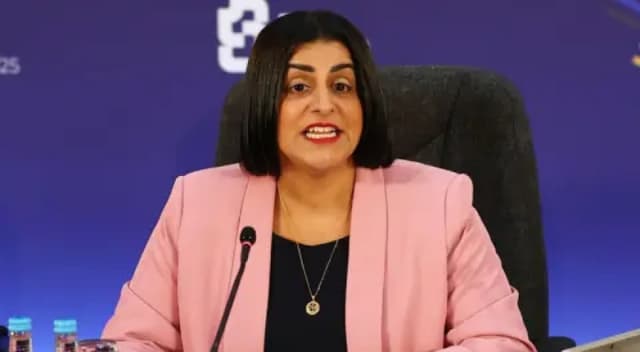






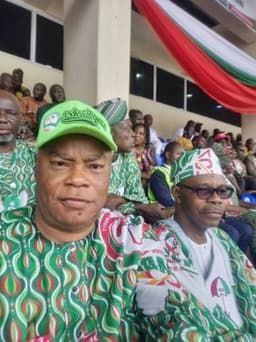





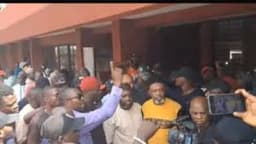
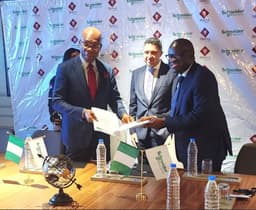




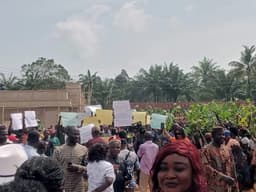
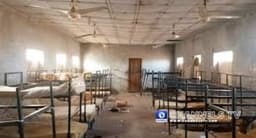
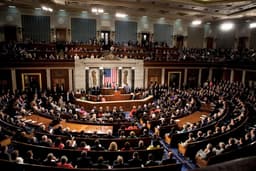
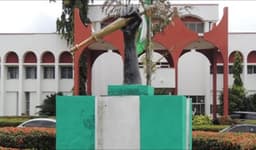
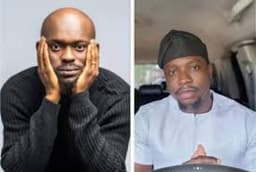
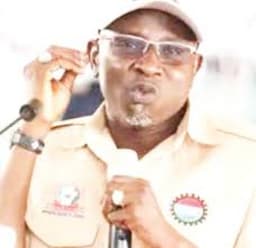


NEWS EXPRESS is Nigeria’s leading online newspaper. Published by Africa’s international award-winning journalist, Mr. Isaac Umunna, NEWS EXPRESS is Nigeria’s first truly professional online daily newspaper. It is published from Lagos, Nigeria’s economic and media hub, and has a provision for occasional special print editions. Thanks to our vast network of sources and dedicated team of professional journalists and contributors spread across Nigeria and overseas, NEWS EXPRESS has become synonymous with newsbreaks and exclusive stories from around the world.